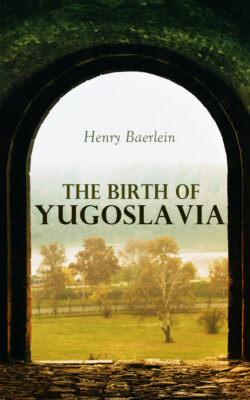Читать книгу The Birth of Yugoslavia - Henry Baerlein - Страница 23
На сайте Литреса книга снята с продажи.
KOSSOVO
ОглавлениеTvertko did his utmost to make of Bosnia the kernel of another great Slav State. The death of Lewis of Hungary freed him from his most redoubtable adversary; Dalmatia, Croatia and other lands were joining him—but then in 1389 came Kossovo, the fatal field of blackbirds, where a disloyal coalition of Serbian, Croatian, Albanian and Bulgarian chieftains went down in irretrievable disaster. Milos Obilić, who is now one of Serbia's popular heroes, had been suspected of lukewarmness; he answered his accusers by gaining access to the Sultan's camp and slaying the Sultan. Not only did the Turks put him to death, but they decapitated their prisoner, Prince Lazar, and all the other chiefs.
The Slavs along the Adriatic were now also on the eve of dire misfortune: protracted wars of succession, in consequence of the death in 1382 of Lewis of Hungary, had ravaged that country and Croatia, so that in their enfeebled condition they could give no assistance to the towns and islands of Dalmatia which for so long had been struggling to elude the grip of Venice. But even so—and with many places handing themselves over voluntarily, in disgust at the almost incredible treason of their elected monarch, Ladislas of Naples, who, after long bargaining, sold his rights to Venice for a hundred thousand ducats, and with many places, in dread of the Turks, placing themselves under the protection of Venice—even so the Venetians had a great deal of trouble in occupying Dalmatia, and a hundred years elapsed before they had the whole of it. As for the two ports, Triest and Rieka (Fiume), they had passed through various episcopal or aristocratic hands. Triest had been in a position to set her face against falling to Venice, of whom she had had, from the tenth to the twelfth centuries, an adequate experience. Both Triest and Rieka were now to pass into the power of the Habsburgs.
